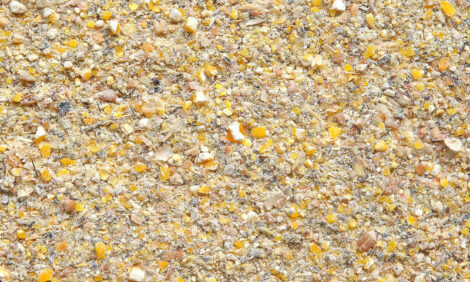



Turkey Aspires to export poultry to EU
TURKEY - The Turkish poultry industry is aspiring to start exporting poultry meat to the EU. Recent EU inspections of the domestic industry were perceived to be quite positive, and some sources expect exports to begin this year. However, there are outstanding technical issues that need to be addressed before the EU will approve imports of Turkish poultry.Poultry Meat
Turkish Newspapers recently carried several articles concerning the possible opening of the
EU market for Turkish poultry meat. In September 2004, The EU Commission sent a
delegation of inspectors from the EU’s Food and Veterinary Office (FVO) to inspect the
Turkish industry and assess governmental controls. Six processing facilities were inspected.
After the visit, they submitted a report to the EU’s Public Health and Consumer Protection
General Directorate (SANKO) and the Turkish Ministry of Agriculture. SANKO is responsible
for deciding not only whether poultry meat imports from Turkey will be permitted, but also
which processing facilities will be eligible. The inspection was carried at six processing
facilities.
According to industry sources, the FVO report favorably reviews the developments in the
industry. However, there are still two points where improvements are needed. First, the
analytical record keeping is insufficient due to a lack of personnel and equipment. Second,
residual controls are inadequate. The report also provides suggestions on eliminating these
problems.
Turkish authorities and industry representatives seem optimistic about the results of the
inspection. Although they believe that the deficiencies can be eliminated within several
months, they assume the final decision will be a political one. Turkey has been banning
imports of both red meat and poultry from all sources since 1996, even though Turkey is
supposed to import 19,000 MT of red meat from the EU countries annually according its
Customs Union agreement.
Turkish poultry meat production totaled nearly 1 MMT in 2004. Of this total, nearly 50 TMT is
turkey meat and the remaining is chicken. The Turkish poultry sector was hurt earlier this
year due to claims that hormones were being used in the production process. The Ministry of
Agriculture did nothing to rebut these claims. As a result, demand and prices declined
significantly. Processors were forced to sell at prices lower than cost. Market conditions
have improved during the last month and prices picked up significantly. The current price
poultry meat sold at the processing facilities is around YTL 2.20 (about USD 1.60) per
kilogram, which is about the cost of production. There is currently about 35,000 MT of
poultry meat in stocks.
Poultry meat exports increased somewhat in 2005. Total exports were about 17,000 MT
during the first four months. Of this total, 11,000 MT were meat (both chicken and turkey)
and 6,000 MT were chicken legs. Turkey has been exporting chicken legs to China and Hong
Kong during the last several years. Poultry meat exports were increased in 2005 especially
to Azerbaijan, Iraq, Ukraine, Macedonia, and Uzbekistan. The GOT is providing an export
subsidy of USD 186 per MT for poultry exports. However, the GOT has limits of 14 percent
for the quantity exported and 20 percent for maximum payment. These payments are not
made by the GOT as cash, but used by the processors as credits against their taxes and
public utility bills.
The compatibility of the Turkish poultry sector in the international markets is very limited
because of its high production costs, primarily feed costs. Feed accounts for about 65
percent of the production costs. Corn and other feed grain prices are high in Turkey because
of TMO announced high procurement and selling prices. Currently, domestic corn prices are
approximately USD 300 and the government has stopped issuing import licenses for corn.
Eggs
Turkish egg production, which is estimated at about 153 million a week, has not changed
significantly since the beginning of the year. However, egg prices declined significantly in
recent weeks due to the decrease in demand (from TL 120,000/piece to TL 70,000/piece).
On the other hand, the production costs are estimated at about TL 90,000/piece. Industry
representatives are asking the government to provide an export subsidy of USD 10 per 1000
pieces. The current export subsidy is USD 6 per 1000 pieces. Although there is no limit on
total egg exports, exporters can only receive USD 4.68 per 1,000 pieces because the subsidy
covers only 78 percent of the total quantity. For example an exporter shipping 1 million eggs
will receive a subsidy on only 780,000 pieces. Turkey exported 3,184 MT (or about 50
million) hatchery eggs and 7,573 MT (or about 125 million table eggs) during the first four
months in 2005.
Source: USDA, Foreign Agricultural Service - 8th May 2005








